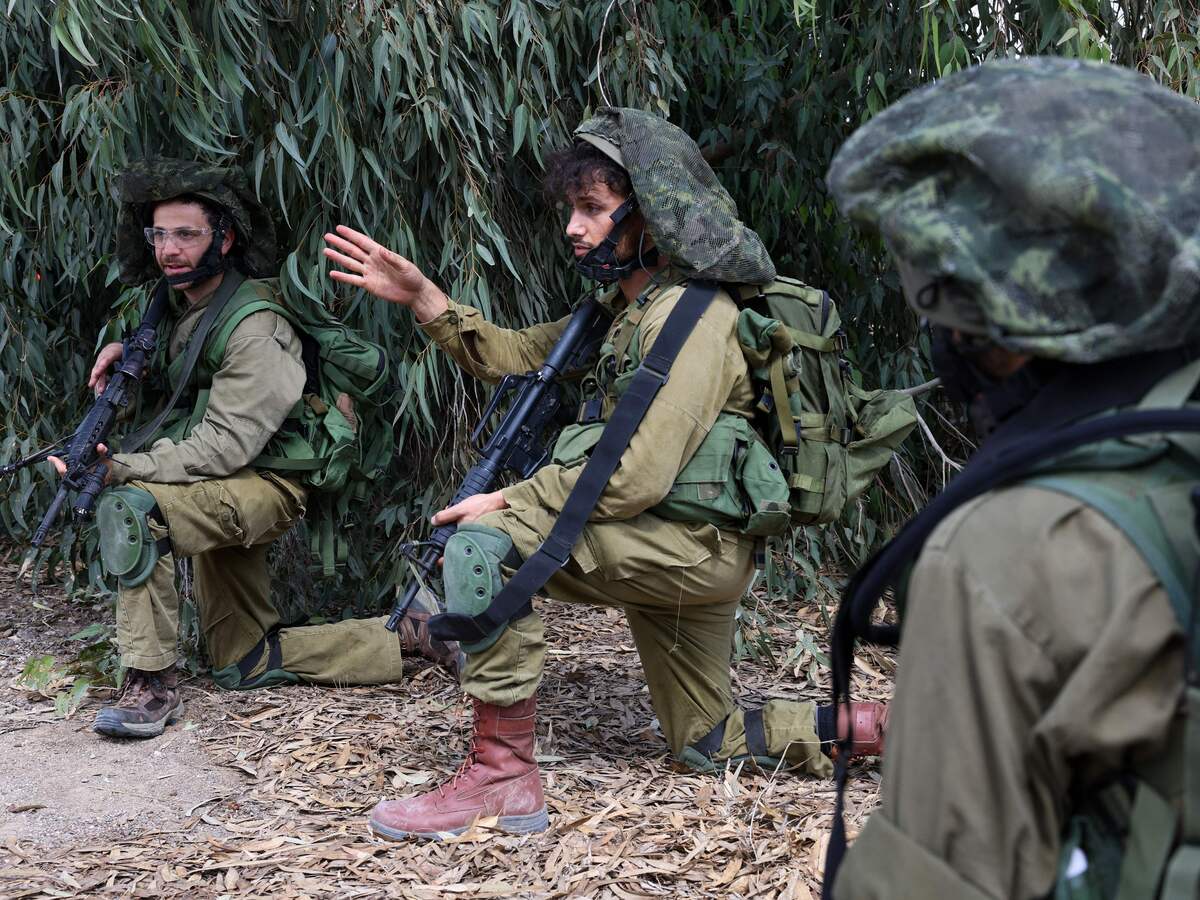
Israeli soldiers take up position in Kfar Aza, in the south of Israel, bordering Gaza Strip on Tuesday. Hundreds of thousands of Israeli reservists have been called up since Hamas militants launched a surprise attack on Israel. THOMAS COEX/AFP via Getty Images hide caption

Israeli soldiers take up position in Kfar Aza, in the south of Israel, bordering Gaza Strip on Tuesday. Hundreds of thousands of Israeli reservists have been called up since Hamas militants launched a surprise attack on Israel.
THOMAS COEX/AFP via Getty ImagesFollowing the surprise attack launched by Hamas militants, hundreds of thousands of Israeli forces are gathering along the border of Gaza.
All signs suggest an Israeli ground invasion of the Palestinian territory is imminent. The last time this happened was in 2014.
NPR's Mary Louise Kelly speaks with reporter Gregg Carlstrom, who covered that conflict, to hear what we might expect if Israel invades Gaza again in the coming days.
Email us at
This episode was produced by Connor Donevan, Alejandra Marquez Janse and Vincent Acovino. It was edited by Tinbete Ermyas, Sarah Handel and Adam Raney. Our executive producer is Sami Yenigun.

 Live Radio
Live Radio